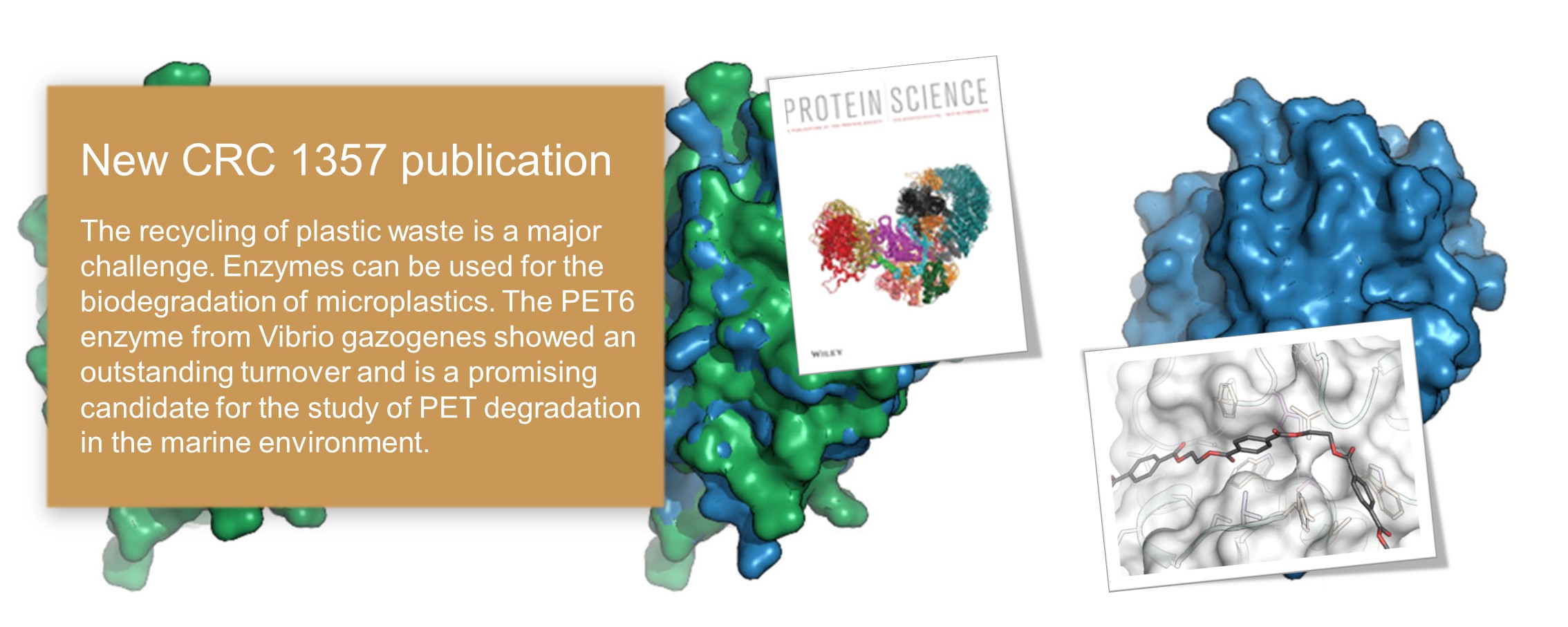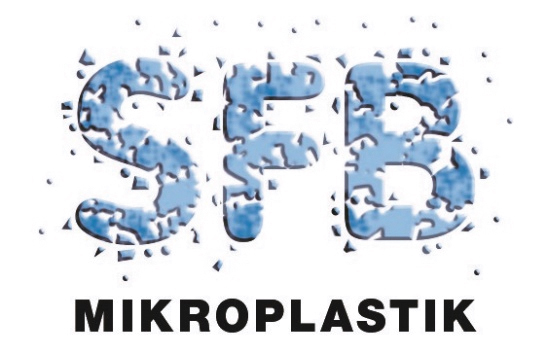News
New CRC 1357 publication: Weigert (2022) - Investigation of the halophilic PET hydrolase PET6 from Vibrio gazogenes
06.11.2022

Congratulations to the C03 team and colleagues from the University of Hamburg: Sebastian Weigert; Pablo Perez-Garcia; Florian J. Gisdon; Andreas Gagsteiger; Kristine Schweinshaut; G. Matthias Ullmann; Jennifer Chow; Wolfgang R. Streit; Birte Höcker on their exciting new publication in the journal Protein Sciences:
"Investigation of the halophilic PET hydrolase PET6 from Vibrio gazogenes"
DOI: https://doi.org/10.1002/pro.4500
Abstract: The handling of plastic waste and the associated ubiquitous occurrence of microplastic poses one of the biggest challenges of our time. Recent investigations of plastic degrading enzymes have opened new prospects for biological microplastic decomposition as well as recycling applications. For polyethylene terephthalate, in particular, several natural and engineered enzymes are known to have such promising properties. From a previous study that identified new PETase candidates by homology search, we chose the candidate PET6 from the globally distributed, halophilic organism Vibrio gazogenes for further investigation. By mapping the occurrence of Vibrios containing PET6 homologs we demonstrated their ubiquitous prevalence in the pangenome of several Vibrio strains. The biochemical characterization of PET6 showed that PET6 has a comparatively lower activity than other enzymes but also revealed a superior turnover at very high salt concentrations. The crystal structure of PET6 provides structural insights into this adaptation to saline environments. By grafting only a few beneficial mutations from other PET degrading enzymes onto PET6, we increased the activity up to three-fold, demonstrating the evolutionary potential of the enzyme. MD simulations of the variant helped rationalize the mutational effects of those mutants and elucidate the interaction of the enzyme with a PET substrate. With tremendous amounts of plastic waste in the Ocean and the prevalence of Vibrio gazogenes in marine biofilms and estuarine marshes, our findings suggest that Vibrio and the PET6 enzyme are worthy subjects to study the PET degradation in marine environments.

